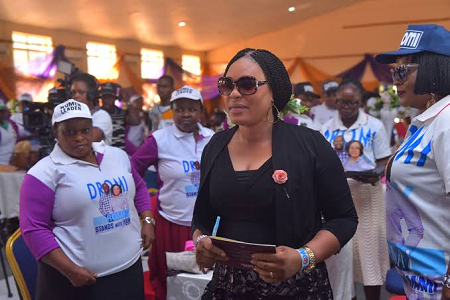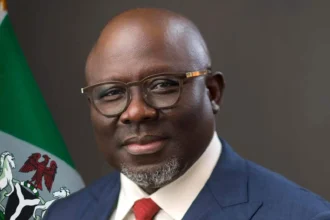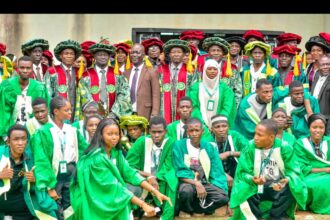Over six hundred women from Ondo West and East Local Government of Ondo State have benefited from the women empowerment programme called the Women Advocacy and Economic Empowerment initiatives.
The event was organised by Dr Rhoda Makinde initiatives (DROMI), a non-governmental organisation primarily dedicated to women empowerment.
The founder of DROMI, Dr Rhoda Makinde, said the program was founded to bring women of diverse economic backgrounds together, to educate, inform and inspire attendees to take charge of their lives and contribute meaningfully to family, community and the society at large.
She said that DROMI was created after observing the link between micro-businesses and women’s self- empowerment in the state. 45 per cent of Nigerian rural women cite financial struggles as the hurdle keeping them from running their businesses.
The founder added that DROMI has helped many women start their micro-businesses and become financially empowered.
ALSO READ: Monetise your social media data, Pantami urges young Nigerians
Makinde noted that the instruments given to the beneficiaries were 114 sewing machines, 99 grinding machines, 41 dryers, 2 mixers and also cash will also be given to some beneficiaries.
According to her, “this summit will include information on how to use microloans and save effectively from local banker.
“It is imperative that every woman in this audience be equipped with the skills they need in order to take care of themselves and their families,” she added.
Speaking earlier, the Member, House of Representative Ondo East and West Federal constituencies, Hon Abiola Makinde expressed joy, saying the empowerment will allow women to obtain their right in the society.
He enjoined the beneficiaries to make good use of the instrument given to them so that they can be good to themselves.
Hon. Makinde urged men to empower their wives so that they can also empower others.
Also speaking, the program coordinator, Mrs Dupe Oluronbi, said the recognition of women’s contributions to economic and social development and equality between men and women have increased interest among policy-makers and development practitioners.
She noted that despite the improvement in gender awareness worldwide, data on women’s work and economic contributions have remained far.
Oluronbi added that evidence and experiences have shown that in many African countries including Nigeria, women have not only been abused but also marginalised.
She said the situation is worse for the rural women who have low literacy level and have become mere tools in the hands of their husbands.
According to her, “the need to empower women especially the poor rural women, is fundamental to economic development in Nigeria.
“This summit attempts to point out the need to empower Nigerian women for economic development.”
She said women perform enormous tasks in their families and the society at large, adding that they have been oppressed and relegated to the background.
Oluronbi further said that women have not been fully involved in decision making to enable them to contribute their own quota in national development. Inaccessibility to health, education and particularly in the planning process have hindered women development.
She posited that violence and abuse of women have also posed a great threat to the self-esteem of women, saying the full potential and place is rightly in the sphere of human development.
She said that microfinance interventions will empower and stimulate women to achieve food security and economic empowerment.








